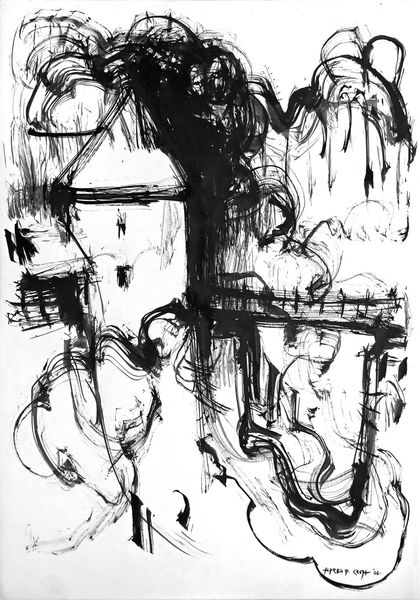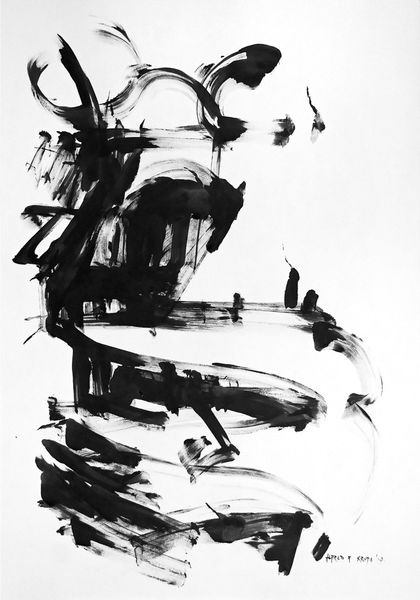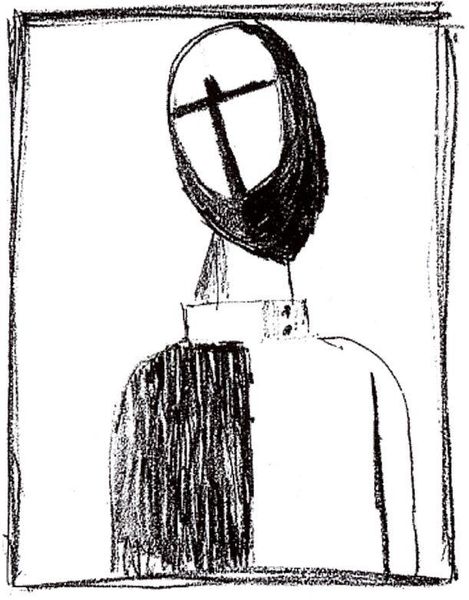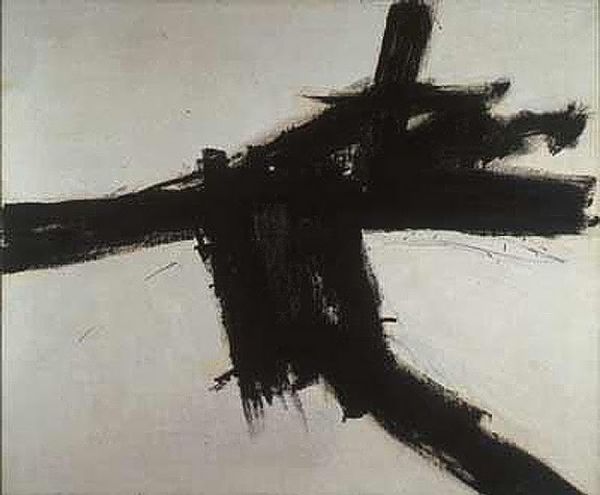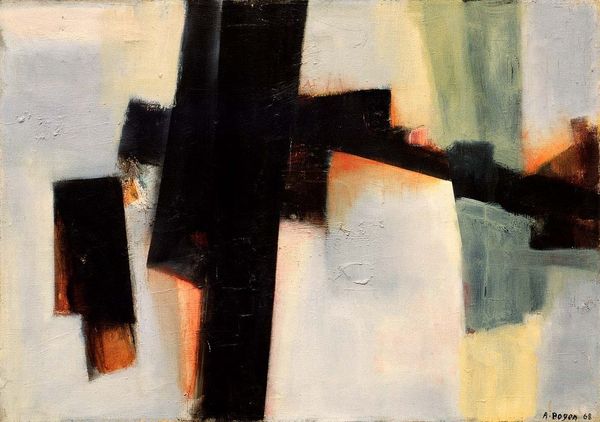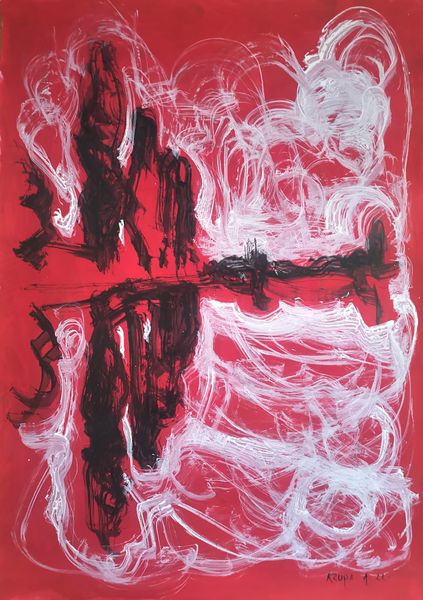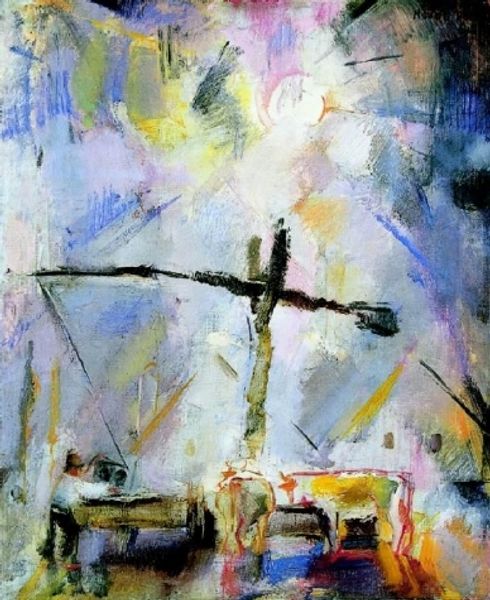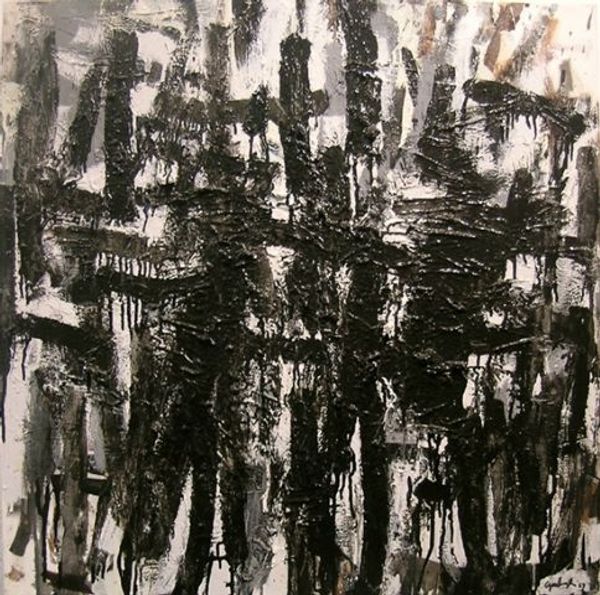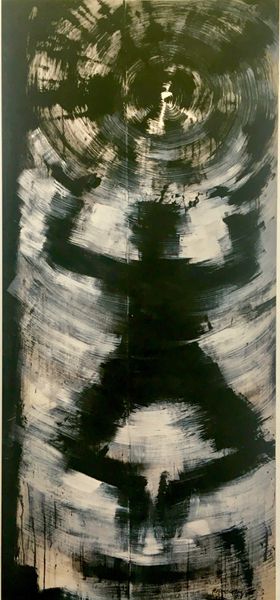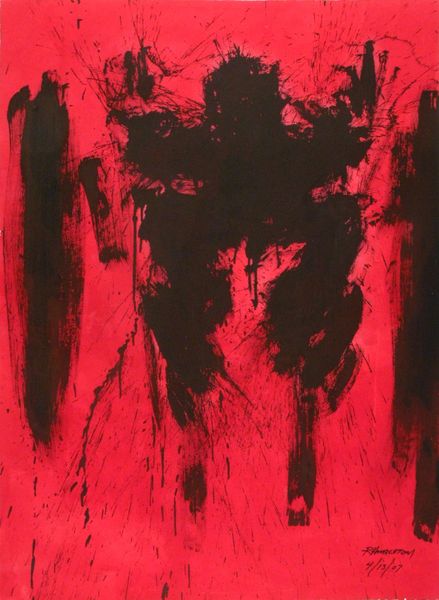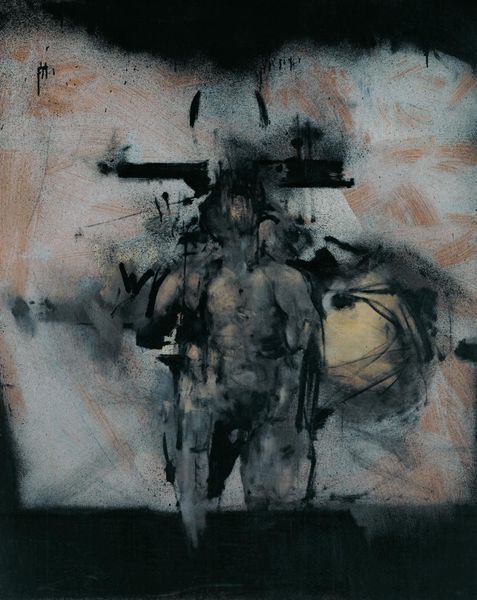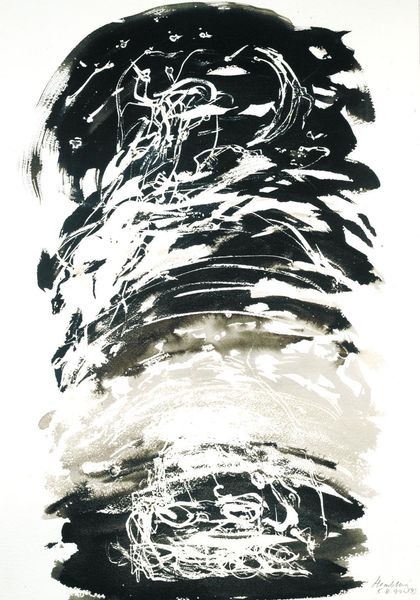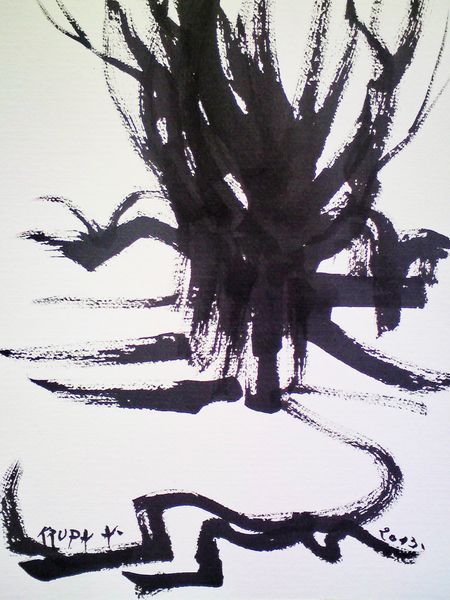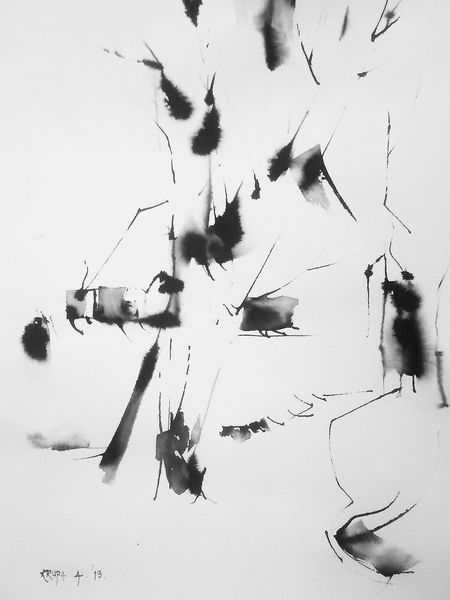
painting, oil-paint
#
abstract-expressionism
#
abstract expressionism
#
painting
#
oil-paint
#
abstraction
#
line
#
monochrome
Copyright: Franz Kline,Fair Use
Editor: This is an "Untitled" oil painting by Franz Kline, created in 1956. The stark black lines against the white background are quite striking, almost like architectural beams or perhaps some kind of broken scaffolding. What strikes you most about this piece? Curator: The social climate of the mid-20th century, particularly post-war anxiety and industrial growth, profoundly influenced Abstract Expressionism. Kline, among others, used abstraction to grapple with societal shifts. Consider the monumentality of these gestures: aren't they reminiscent of steel girders in burgeoning urban landscapes, a sort of visual echo of rapid construction and, perhaps, deconstruction? Editor: That's a fascinating take. I hadn't considered the connection to urban development so explicitly. I was more focused on the gestural aspect and the seemingly spontaneous energy. Curator: The gesture is indeed central, but it's important to examine the art world ecosystem in which it thrived. Museums began embracing Abstract Expressionism, signaling a shift towards valuing individual expression as a reflection of American freedom and ingenuity during the Cold War. Does knowing this historical context change how you perceive the seeming spontaneity? Editor: It adds another layer of meaning. The "freedom" becomes less purely aesthetic and more culturally loaded. So, in a way, even an "Untitled" piece like this could be seen as participating in a broader cultural narrative? Curator: Precisely. The rise of Abstract Expressionism and the rhetoric surrounding it served very specific socio-political functions. Analyzing the politics of imagery can be just as revealing as analyzing brushstrokes. Editor: I'll definitely keep that in mind. It’s easy to get lost in the aesthetic, but the social and political context provides a richer understanding. Curator: And I'm reminded how immediate and emotionally potent Kline's visual language remains, despite its historical complexities. There's always more to discover!
Comments
No comments
Be the first to comment and join the conversation on the ultimate creative platform.
